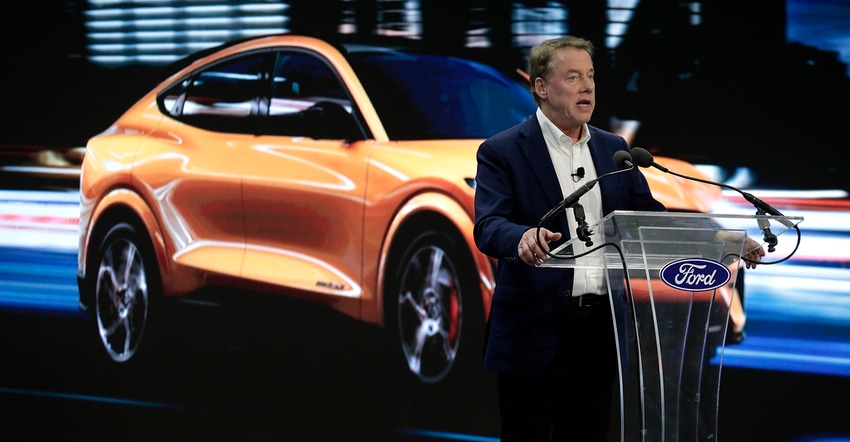Ford Builds Up, Cuts Down EV Operations—At the Same Time
New Michigan battery factory announced almost concurrently with layoffs in Europe show the highs and lows of the EV market’s volatility.
February 17, 2023

With today’s unclear economic conditions, it is becoming particularly difficult for automakers to sustain stable operations. This challenge is only further compounded given the state of the automotive industry, where every company is rushing to overhaul its existing portfolio in place of brand-new, electric vehicle offerings.
One company that is experiencing these ups and downs is Ford Motor Co., which just this week announced both a $3.5B investment into a new battery plant as well as the elimination of 3,800 European jobs. In this piece, we’ll dive deeper into each of these juxtaposing headlines and try to get a better feel for Ford’s future direction.
Ford’s New Battery Plant
Earlier this week, Ford made headlines with the announcement of bolstering their EV business through the development of a $3.5B battery facility in Michigan.
Interestingly, this project is receiving significant funding from the state of Michigan, which will be providing Ford with more than $1B in incentives, including a $210m grant and a waiver of property taxes, in exchange for the plant being in Michigan. The plant, which will be called the Blue Oval Battery Park Michigan plant, promises to employ at least 2,500 people when it opens in 2026.
The factory, on a 1,900-acre site between Marshall and Battle Creek, will be the first in the US to produce lithium iron phosphate (LFP) batteries. Chinese company Contemporary Amperex Technology (CATL) will be closely tied to this venture, supplying battery technology and design while the factory is not in operation.
From Ford’s perspective, the new LFP plant will help bring their battery supply chain to the US. The hope is to significantly reduce traditional shipping and import costs to allow for more affordable EVs and better profit margins. These batteries will be used in Mustang Mach-E and F-150 Lightning products starting in 2024.
The new battery production facility in Marshall will provide Ford with an increased yearly battery capacity of 35 GWh, a number that can account for up to 400,000 Ford EVs. Since 2019, Ford and its battery technology collaborators have announced $17.6 billion in investment in EV and battery production in the United States, leading to more than 18,000 direct jobs in the U.S. and more than 100,000 indirect jobs.
Ford Cuts European Jobs
Yet, despite Ford’s ambitious new spending on the Blue Oval Battery Park, it seems the company is making some cost-saving decisions in other departments. This week, Ford also announced that they will be cutting 3,800 European jobs over the next three years.
Within these job cuts, Ford intends to eliminate 2,300 jobs in production development and administration in Germany, 1,300 in the UK, and 200 elsewhere in Europe. Despite this, the company will be retaining nearly 34,000 jobs in Europe, most of which will be focused on vehicle design.
According to CEO Jim Farley, the restructuring is an attempt to adopt a leaner corporate structure so that the company can focus more singularly on electric vehicle production. The company feels that, as they transition their business focus to the world of EVs, they will be forced to take stock of their current organizational structure, talent, and skills, and restructure accordingly.
While Ford may seem to be sending mixed signals with these juxtaposed headlines, what is clear is that the company is fully committed to electric vehicles. Between a massive investment in a new battery plant in Michigan and the removal of non-EV-centric roles, Ford seems to be all-in on their goals of achieving a fully electric fleet by 2035.
About the Author(s)
You May Also Like





